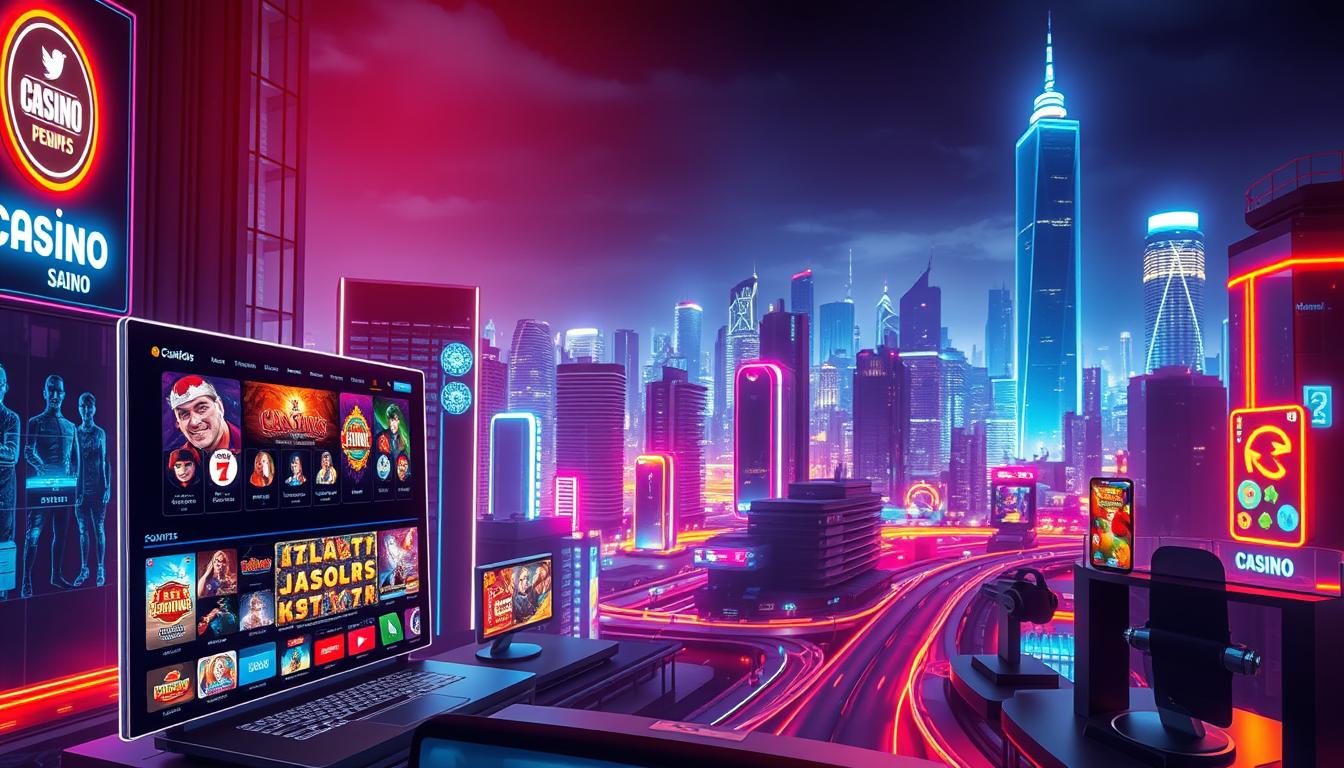
Online casinos have come a long way since their beginnings in the mid-1990s. Early platforms relied on Flash technology to deliver basic games. These games were simple but laid the groundwork for future advancements.
Over time, the industry shifted to HTML5. This change brought better performance and mobile compatibility. Players could now enjoy games on any device, anytime. Improved security also became a priority, ensuring safer experiences.
Graphics and animations saw significant upgrades. What started as basic browser-based games transformed into interactive experiences. Today, immersive technologies like VR are pushing boundaries even further.
This article explores how technology and player expectations shaped the online casino industry. From Flash to HTML5, each phase brought new possibilities.
In the late 1990s, the first wave of online gambling platforms emerged, powered by Flash technology. These early systems offered basic casino games like slots, blackjack, and roulette. While the graphics were simple, they introduced players to a new way of gaming.
Flash-based platforms relied on static visuals and basic animations. This limited the overall experience but laid the groundwork for future advancements. Players could enjoy these games directly in their browsers, making them accessible to a wider audience.
Early casino games were straightforward, with minimal interactivity. Graphics were often pixelated, and animations were basic. Despite these limitations, they captured the attention of players eager to try something new.
Popular games included classic slots and card games. These titles were easy to play but lacked the depth and complexity of modern gaming. Still, they provided a foundation for what was to come.
Flash technology came with its share of issues. Performance lags were common, especially on older devices. Limited bandwidth and slow internet speeds further impacted the gaming experience.
Security was another concern. As more players joined these platforms, vulnerabilities became apparent. Developers had to address these challenges to ensure a safer environment for users.
Despite these drawbacks, Flash-based platforms were a crucial step in the development of online casinos. They set benchmarks for future improvements, paving the way for more advanced technologies.
The shift from Flash to HTML5 marked a turning point in the digital gaming world. This transition brought significant improvements in performance, security, and accessibility. Players could now enjoy games on any device, from desktops to smartphones, without compromising quality.
HTML5 introduced a new level of mobile compatibility. Games became responsive, adapting seamlessly to different screen sizes. This allowed players to access their favorite titles on the go, using smartphones or tablets.
Security also saw major upgrades. HTML5 integrated advanced encryption protocols, safeguarding player information. This made gaming platforms more trustworthy and reliable for users worldwide.
Graphics and animations reached new heights with HTML5. Richer visuals and smoother transitions created immersive experiences. Interactive user interfaces made gameplay more engaging and enjoyable.
Load times became faster, and responsive design ensured a seamless experience across devices. These improvements set a new standard for online gaming platforms.
| Feature | Flash | HTML5 |
|---|---|---|
| Mobile Compatibility | Limited | Full Support |
| Security | Basic | Advanced Encryption |
| Graphics | Static and Pixelated | Rich and Dynamic |
| Load Times | Slow | Fast |
| Cross-Platform Support | None | Seamless |
Today, HTML5-powered platforms dominate the gaming world. They offer a blend of cutting-edge features and user-friendly design. This evolution reflects the growing expectations of players and the industry’s commitment to innovation.
Innovative gaming experiences are reshaping the way players interact with online platforms. Live dealer games and virtual reality (VR) technologies are at the forefront of this transformation. These advancements bridge the gap between digital and physical casinos, offering immersive and interactive experiences.
Live dealer games have revolutionized the online gambling market. Using high-definition video streaming, they recreate the ambiance of land-based casinos. Players can interact with real dealers in real-time, adding a social element to the experience.
These games often feature advanced slot designs and dynamic animations. This integration enhances gameplay, making it more engaging. Developers have focused on creating seamless transitions between digital and live elements.
The rise of live dealer games reflects a broader trend in the market. Players increasingly seek interactive and authentic experiences. This shift has set new standards for online casinos, pushing developers to innovate further.
VR technology is poised to take online gambling to new heights. It offers fully immersive casino environments accessible on mobile devices and desktops. Players can explore 3D casino floors and interact with others in virtual social spaces.
Developers are pioneering these features, setting new industry benchmarks. VR experiences provide a level of engagement unmatched by traditional platforms. This technology is shaping the future online casino landscape.
As VR becomes more accessible, its impact on the market will grow. Players can expect even more immersive and interactive gaming experiences in the coming years. The role of developers in this evolution cannot be overstated.
Technological advancements have reshaped the gambling industry over the years. From basic Flash-based games to sophisticated HTML5 platforms, each phase brought significant change. Improved security and mobile access have made gaming safer and more convenient for every user.
Live dealer games and VR technologies have elevated the experience, bridging the gap between digital and physical casinos. These innovations reflect the growing popularity of immersive gaming. As advancements continue, the future online gaming landscape promises even more engaging experiences.
Each milestone has set new standards for developers and players alike. The gambling industry remains committed to innovation, ensuring sustained growth and a better user experience. With every passing day, technology continues to transform how we play and interact.